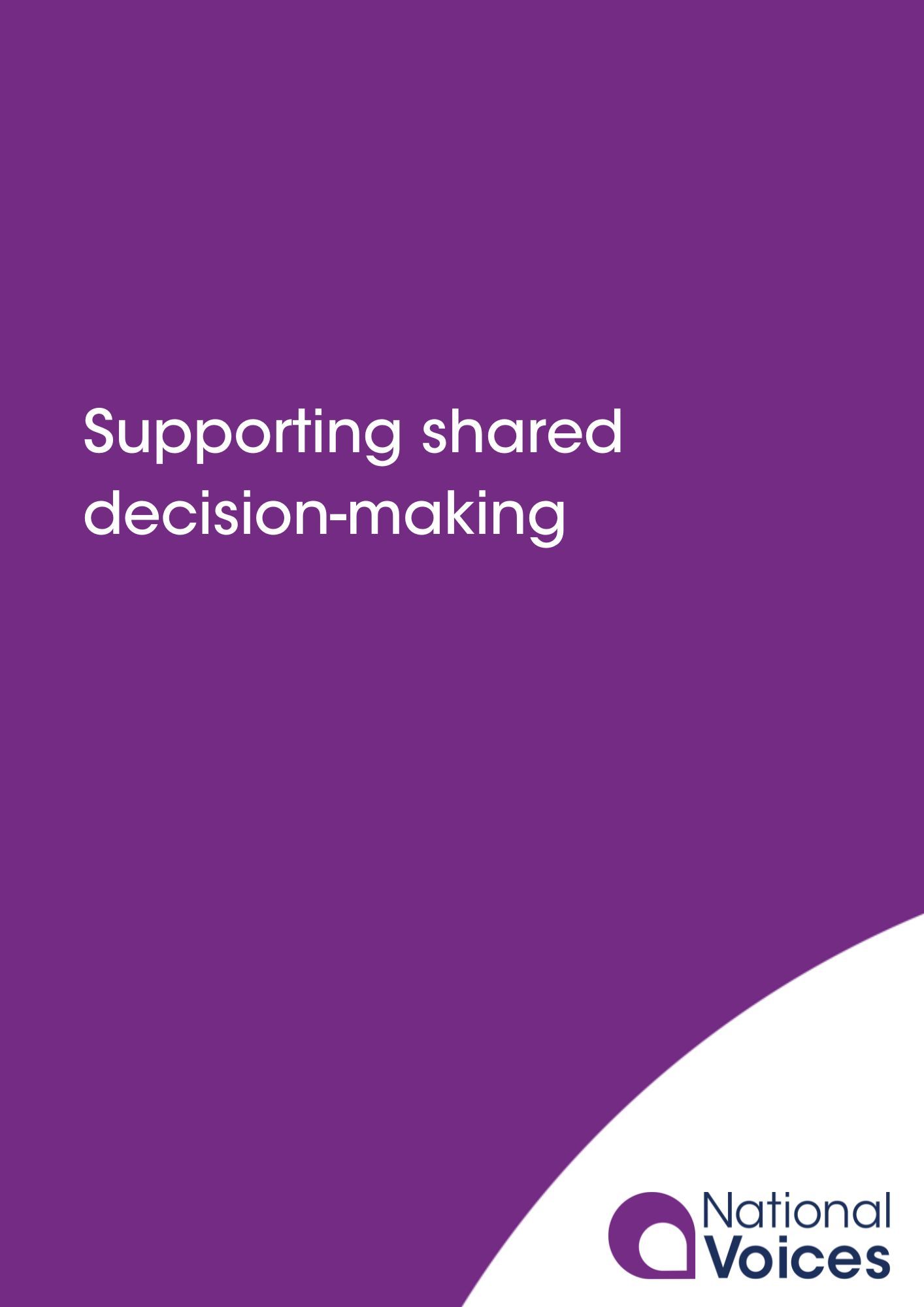
Supporting shared decision-making
- Communication and administration
- Person-centred care
Frequently, treatment decisions are not just about clinical effectiveness. Where there are different options with different benefits and harms, it is important that these are tested against the values, preferences and circumstances of the individual patient.
For example, faced with a similar treatment decision, one person may prefer surgery that removes pain but requires long recovery; another may prefer ‘watchful waiting’ and pain management.
Shared decision-making is a process by which people are involved as equal and active partners with the clinician in clarifying acceptable medical options and choosing a preferred course of care that is appropriate to the individual.
We compiled information from 48 systematic reviews, which revealed that the most effective approaches include:
- providing decision aids, and support to use them, to help people think through the pros and cons of options
- providing question prompts to help people interact during consultations
- coaching and education to support patients to be more engaged
- access to medical records
If you would like to read this summary in an alternative format, please get in touch.